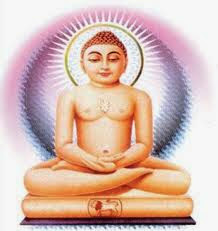
India is a land of diverse cultures, religion and festivals.One such religion is ‘Jainism’ propounded by Lord Mahavira and based on the concept of non-violence,non –possession,non-absolutism,etc. ‘Paryushan Parva’ (“Paryushana”)is one of the most important Jain festivals and is celebrated every year during the auspicious month of ‘Bhadrapad’ (mid-August to mid-September in the Hindu calendar). It is a festival of fasting and forgiveness; a time of reflection and repentance for Jains worldwide.
The meaning of Paryushana:
The word “Paryushana” has different interpretations.But basically it means to stay closer to our own soul from all directions.It implies shedding or burning our all bad karmas and suppressing negative emotion such as anger, ego, deceit and greed.The most important part of Paryushan is the practice of daily meditation and prayer, providing an opportunity to look inward and outward, towards the teachings of the enlightened Jain Tirthankaras, for religious guidance.
The festival of Paryushana:
Svwetambara Jains celebrate an 8-day festival ending with Bhadarpada Shukla Panchami. The last day is called Samvatsari on which fasting is observed. Since it coincides with Paryushana, the terms “Samvatsari” and “Paryushana” are sometimes used interchangeably.During the 8-day festival, the “Kalpa Sutra” a scripture which recounts the life of Mahavira - the fourteen dreams of his mother before his birth, followed by the story of his birth, his life, and his liberation is recited. The Kalpa Sutra also recounts the lives of other Jain Tirthankaras and the rules of Paryushana.
The Digambara Jains observe Paryushana over 10 days starting from Bhadrapada Shukla Panchami. During this time, the “Dashalakshana Vrata” which celebrates 10 characteristics of dharma such as gentleness, austerity, truth, renunciation, chastity and humility is undertaken. The Tatvartha-sutra of Umaswati is recited.
Overseas, various Jain centers have been established with the presence of samans and samanis (monks and nuns) who are part of a new order created especially to attend to Jain communities residing outside India as well as established scholars are sent to different places to encourage participation in the festival and rituals and keep their faith alive.
Jains often take time off from daily chores during this period and eat a much simpler diet. They add to their normal vegetarian restrictions by avoiding such foods as potatoes, onions, and garlic i.e they avoid eating that which entails killing the entire plant instead of just taking its fruit. Many Jains also fast during Paryushana, some for the entire period and others also observe the Paushadha Vrata, the practice of monkhood for a day or more while fasting.
A special indication to celebrate Paryushana
• Practice ‘Samayika’ i.e. equanimity
• Control food intake
• Read spiritual books
• Speak less and use kind words)
• Practice meditation
• Control on anger
• Send vibrations of friendliness to all living beings everyday
By following such a life-style, one can develop spirituality within the self. These activities purify one’s emotions and thereby consciousness. Paryushana is the time to fill the qualities lacking in our lives.
Shamayachna: The essence of Paryushan
On this day people observe a unique custom, where they ask every individual they may have offended during the year for forgiveness. Old quarrels are forgotten and friendships and relationships renewed, as they fold their hands and ask for "Micchamidukadam" or forgiveness. Michchhami means to be fruitless (forgiven) and Dukkadam means bad deeds. Therefore the meaning of Michchhami Dukkadam is my bad deeds (with you) be fruitless. So concept behind saying or writing someone "Michchhami Dukkadam" is that if I have done any harm to you then those bad deeds be forgiven (be fruitlessThe process of shedding our karmas really begins by asking for forgiveness with true feelings, and by taking the vow not to repeat mistakes. The quality of forgiveness requires humility (absence of ego) and suppression of anger. One of the great aphorisms to ask for forgiveness is:
Khamemi savva jive,
Savve jiva khamantu me
Mitti me savva bhooesu,
Veram majjha na kenai.
I grant forgiveness to all living beings,
May all living beings grant me forgiveness;
My friendship is with all living beings,
My enmity is non-existent.
Let there be peace, harmony, and prosperity for all.
The conclusion of the festival leaves behind a deep impression in the heart and minds of every Jain wherever they may be in the world.
Om Arham.
 Dr. Kusum Lunia
Dr. Kusum Lunia